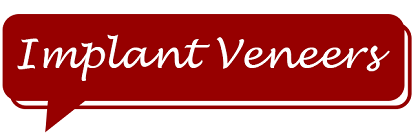
Preschool plays a crucial role in a child’s early development, laying the foundation for future academic success and social-emotional well-being. While traditional preschool curriculums offer valuable educational experiences, hands-on preschools take a unique approach, prioritizing active learning and fostering a love for discovery through play. This immersive style of learning allows children to engage with the world around them in a stimulating and interactive way. Here are five key benefits of enrolling your child in a hands-on preschool:
- Spark Curiosity and a Love for Learning:Hands-on preschools encourage a spirit of exploration and discovery. Learning happens through play-based activities that spark curiosity and a natural desire to learn. Children might build structures with blocks, explore the science behind baking cookies, or conduct mini-experiments with water and ice. These engaging activities allow children to ask questions, solve problems, and develop critical thinking skills in a fun and interactive way.
- Enhance Social and Emotional Development:Preschool is a crucial time for social development, and hands-on preschools provide a nurturing environment where children can learn valuable social skills. Through collaborative play activities, children learn how to share, take turns, communicate effectively, and build friendships. Hands-on experiences also allow children to express their emotions healthily, navigate conflict resolution, and develop empathy for others.
- Boost Creativity and Problem-Solving Skills:Hands-on preschools nurture children’s creativity through open-ended play and exploration. With access to diverse materials and opportunities for creative expression, children can experiment, build, and imagine freely. This fosters creative thinking, resourcefulness, and the ability to approach problems from different angles.
- Develop Fine and Gross Motor Skills:Hands-on preschool incorporates activities that help children develop both fine and gross motor skills. Fine motor skills involve small muscle movements, such as manipulating playdough, building with blocks, or using crayons and scissors. Gross motor skills involve larger muscle movements, such as climbing, running, and jumping. Hands-on activities like building forts, engaging in dramatic play, or participating in outdoor activities all contribute to the development of strong motor skills.
- Build Confidence and Independence:Hands-on preschools empower children to take ownership of their learning experiences. By participating in self-directed play and exploration, children learn to make choices, solve problems independently, and feel confident in their abilities. As they master new skills and navigate challenges through hands-on experiences, children develop a strong sense of self-esteem and a positive approach to learning.
A hands-on preschool offers a unique and enriching learning environment that caters to the natural curiosity and energy of young children. By prioritizing play-based activities, exploration, and hands-on experiences, these preschools foster a love for learning, social-emotional development, creativity, motor skills, and a strong sense of self-confidence. If you’re looking for a preschool that will nurture your child’s natural desire to explore and grow, a hands-on preschool might be the perfect fit.



